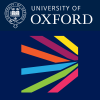Princeton University Press Lectures in European History and Culture I: The Challenge of World Literature
On January 31st, 1827, the German writer Johann Wolfgang von Goethe shocked his secretary by uttering a new word: world literature. Goethe had just read a Chinese novel and concluded that Europe needed to rethink its relation to the rest of the world. Humanity was entering a new phase: the phase of world literature.
Coined in provincial Weimar, the idea of world literature soon caught the imagination of Marx and Engels and was subsequently used by those seeking to promote national literatures, from Yiddish to South Asia, within an international context. What can we learn from this history? And what does the term world literature mean today?
The guest speaker for this event is Martin Puchner, the Byron and Anita Wien Professor of English and Comparative Literature at Harvard University. His writings, which include a dozen books and anthologies and over sixty articles and essays, range from philosophy and theater to world literature and have been translated into many languages. Through his best-selling Norton Anthology of World Literature and his HarvardX MOOC Masterpieces of World Literature, he has brought four thousand years of literature to audiences across the globe. His most recent book, The Written World, which tells the story of literature from the invention of writing to the Internet, has been widely reviewed in The New York Times, The Times (London), the Financial Times, The Times Literary Supplement, The Atlantic, The Economist, among others, covered on radio and television, and is forthcoming in over a dozen languages. In hundreds of lectures and workshops from the Arctic Circle to Brazil and from the Middle East to China, he has advocated for the arts and humanities in a changing world.




